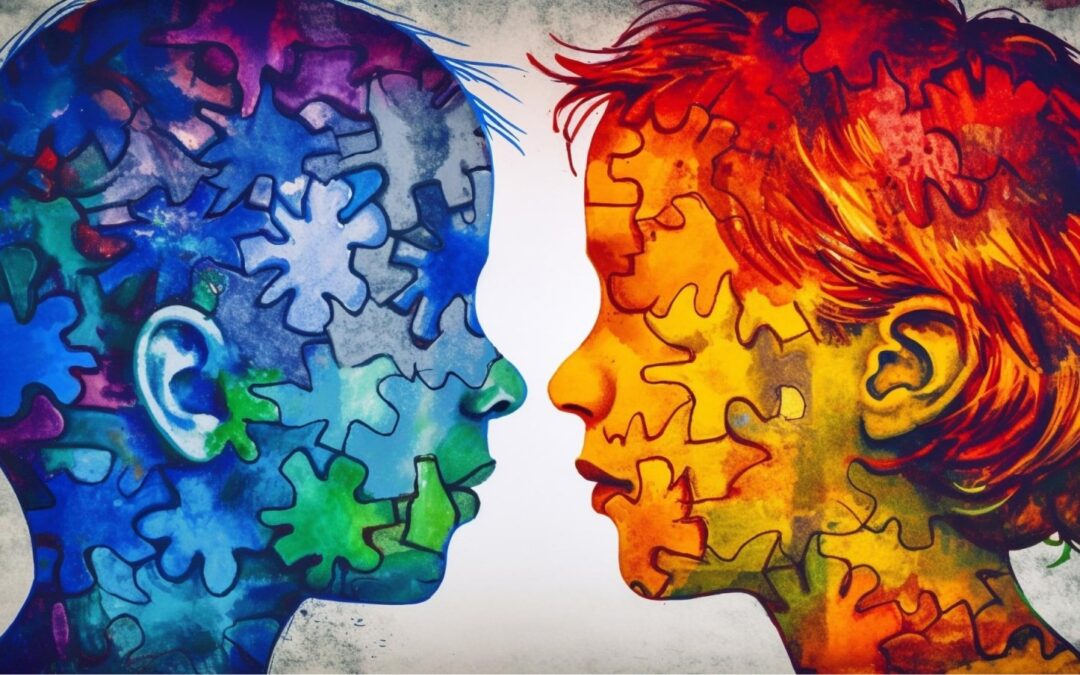IFS (Internal Family Systems Therapy) was created by Dr. Richard Schwarz in the 1980s. It is an evidence-based therapy:
http://www.jrheum.org/content/early/2013/08/10/jrheum.121465.full.pdf
IFS assumes that we have many different internal parts. They are subpersonalities. Some of the parts (exiles) carry our inner burdens – traumas, wounds, repressed emotions. These parts need some relief. Other parts protect us from experiencing these emotions – guardians (firemen, managers). Every part of us needs understanding, acceptance, compassion and love. Getting to know your parts, with curiosity, mindfulness and courage, in a state of contact with the inner self, can be a fascinating, healing adventure. We get in touch with our own self by detaching ourselves from parts. It is a very quick and effective way to find contact with your own self. Some people meditate for many years to reach this state.
Demonstration session of IFS psychotherapy:
Books about IFS:
Breunlin, Douglas C.; Schwartz, Richard C.; Kune-Karrer, Betty Mac (1992). Metaframeworks: transcending the models of family therapy. The Jossey-Bass social and behavioral science series. San Francisco: Jossey-Bass. ISBN 1555424260. OCLC 24590165.
Michelson, Katherine J. (1998). “Mapping multiplicity: an application of the internal family systems model”. In Nelson, Thorana Strever; Trepper, Terry S. (eds.). 101 more interventions in family therapy. Haworth marriage and the family. New York: Haworth Press. pp. 426–430. ISBN 078900058X. OCLC 38144382.
Schwartz, Richard C. (1998). “Internal family systems family therapy”. In Dattilio, Frank M.; Goldfried, Marvin R. (eds.). Case studies in couple and family therapy: systemic and cognitive perspectives. The Guilford family therapy series. New York: Guilford Press. pp. 331–352. ISBN 1572302976. OCLC 37721397.
Schwartz, Richard C. (1999). “The internal family systems model”. In Rowan, John; Cooper, Mick (eds.). The plural self: multiplicity in everyday life. London; Thousand Oaks, CA: SAGE Publications. pp. 238–253. ISBN 0761960759. OCLC 44414295.
Schwartz, Richard C. (1999). “The self-to-self connection: intimacy and the internal family systems model”. In Carlson, Jon; Sperry, Len (eds.). The intimate couple. Philadelphia: Brunner/Mazel. pp. 263–275. ISBN 0876308809. OCLC 39347380.
Johnson, Laura M.; Schwartz, Richard C. (2000). “Internal family systems work with children and families”. In Bailey, C. Everett (ed.). Children in therapy: using the family as a resource. A Norton professional book. New York: W. W. Norton & Company. pp. 73–111. ISBN 0393702898. OCLC 43845598.
Schwartz, Richard C.; Rose, Michi (2002). “Internal family systems therapy”. In Carlson, Jon; Kjos, Diane (eds.). Theories and strategies of family therapy. Boston, MA: Allyn & Bacon. pp. 275–295. ISBN 020527403X. OCLC 47296206.
Nichols, Michael P.; Schwartz, Richard C. (2006) [1984]. Family therapy: concepts and methods (7th ed.). Boston, MA: Pearson Education/Allyn & Bacon. ISBN 0205478093. OCLC 60825574.
Holmes, Tom (2007). Parts Work: An Illustrated Guide to Your Inner Life. Winged Heart Press. ISBN 978-0979889714.
Schwartz, Richard C.; Schwartz, Mark F.; Galperin, Lori (2009). “Internal family systems therapy”. In Courtois, Christine A.; Ford, Julian D. (eds.). Treating complex traumatic stress disorders: an evidence-based guide. New York: Guilford Press. pp. 353–370. ISBN 9781606230398. OCLC 234176147.
Schwartz, Richard C.; Blow, Adrian J. (2010). “Creating self-to-self intimacy: internal family systems therapy with couples”. In Gurman, Alan S. (ed.). Clinical casebook of couple therapy. New York: Guilford Press. pp. 375–398. ISBN 9781606236765. OCLC 559649909.
Ecker, Bruce; Ticic, Robin; Hulley, Laurel (2012). Unlocking the emotional brain: eliminating symptoms at their roots using memory reconsolidation. New York: Routledge. ISBN 9780415897167. OCLC 772112300.
Schwartz, Richard C. (2013). “Internal family systems”. In Rambo, Anne Hearon; et al. (eds.). Family therapy review: contrasting contemporary models. New York: Routledge. pp. 196–199. ISBN 9780415806626. OCLC 754732614.
Sweezy, Martha; Ziskind, Ellen L., eds. (2013). Internal family systems therapy: new dimensions. New York: Routledge. ISBN 9780415506830. OCLC 758394531.
Papernow, Patricia L. (2013). Surviving and thriving in stepfamily relationships: what works and what doesn’t.
Fisher, Janina (2017). Healing the fragmented selves of trauma survivors: overcoming internal self-alientation. New York: Routledge. ISBN 9780415708227. OCLC 961009372. Grabowski, Amy Yandel (2017). An internal family systems guide to recovery from eating disorders: healing part by part. New York: Routledge. ISBN 9781138745209. OCLC 972740227. Spiegel, Lisa (2017). Internal family systems therapy with children. New York: Routledge. ISBN 9781138682108. OCLC 959602748. Sweezy, Martha; Ziskind, Ellen L., eds. (2017). Innovations and elaborations in internal family systems therapy. New York: Routledge. ISBN 9781138024380. OCLC 920723974.
ABOUT ME

Paweł Górny – certified psychotherapist of the Polish Society of Cognitive and Behavioral Therapy, Certificate No. 282: http://www.pttpb.pl/licensed-terapeuci., and the European Association for Behavioral and Cognitive Therapies. He graduated from Postgraduate Study of Cognitive-Behavioral Therapy (SWPS Sopot) and Centre for Solution Focused Therapy in Warsaw. He has a certificate of an advanced individual and group therapist of SCHEMA THERAPY, member of the International Society of Schema Therapy. He is currently training in Schema Therapy with Ida Shaw, Joan Farrell and Wendy Behary. He belongs to the Polish Society of Cognitive-Behavioral Therapy and the Polish Psychiatric Association. Her therapeutic work is subject to regular supervision. Master of psychology (University of Gdańsk) and Polish philology (UG). He graduated from clinical psycho-oncology studies at the University Clinical Center.
In his daily work, he tries to “follow the good side of man”.
BOOKING CALENDAR
WHY ME
OPENNESS AND EMPATHY
In the office, the Patient will meet with acceptance and understanding. I help people struggling with various difficulties, regardless of their age, origin and life history. Each of us lives the best we can at any given moment in our lives
EFFECTIVENESS
Cognitive-behavioral psychotherapy is a therapy based on cooperation and individual elaboration of the patient’s problems. The patient works on change, striving to achieve selected therapeutic goals. In therapy, we use treatment techniques with scientifically proven effectiveness
EXPERIENCE
I have experience in working with patients struggling with affective (mood), anxiety, obsessive-compulsive, adaptive, eating, sleep, personality, psychotic and addiction disorders. I have experience in clinical work and in healthcare units.

